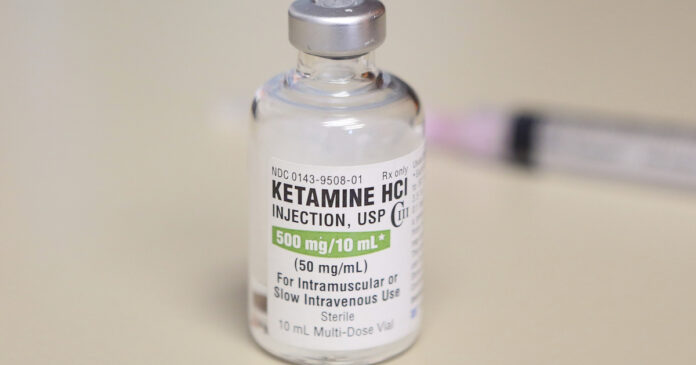
In the quiet town of Hawkhurst, Kent, a man named Simon Bottle has been battling depression for an astounding three decades. For so long, depression cast a shadow over every aspect of his life – from his education and career to his personal relationships. But Simon’s life took an unexpected turn when he stumbled upon an unconventional treatment that has been gaining both praise and notoriety: ketamine.
Ketamine, primarily known as an anesthetic, has developed a reputation as an illegal party drug. However, it is also garnering attention for its potential in the field of mental health. Simon Bottle’s transformative experience with ketamine has ignited hope for others like him who have been suffering from drug-resistant depression.
For Simon, depression was an all-encompassing burden that occasionally resulted in debilitating breakdowns, leaving him feeling incapacitated. But then, he decided to explore an alternative path by acquiring a private prescription for ketamine. The decision to try this unconventional treatment proved to be a game-changer for him.
Describing his experience, Simon explained how, almost instantly, a heavy weight began to lift from his shoulders – a sensation he hadn’t felt in decades. Ketamine offered him a glimmer of hope, something that had seemed unattainable for so long, and that gradually transformed into a springboard to recovery.
Encouraged by personal success stories like Simon’s, some medical experts are pushing for further research into ketamine’s potential as an antidepressant treatment. One such advocate is Prof Rupert McShane from Oxford Health NHS Foundation Trust, who highlights the success rates from trials in the US, Australia, and Oxford’s own NHS hospital.

According to Prof McShane, approximately 30% of depression patients who were administered ketamine showed sustained improvements even a year after treatment, compared to a mere 5% on traditional antidepressants. This revelation opens the door to a new approach for individuals who have been resistant to other forms of treatment.
Intriguingly, ketamine functions differently from conventional antidepressants, which may explain its effectiveness in otherwise treatment-resistant cases. This exciting discovery suggests that ketamine could potentially become a groundbreaking alternative to electroconvulsive therapy (ECT) – a treatment option that often elicits fear among patients.
Despite the growing enthusiasm surrounding ketamine’s therapeutic potential, the medical community remains cautiously optimistic. The Royal College of Psychiatrists acknowledges early research that suggests ketamine’s effectiveness in treating severe mental illnesses for some individuals who have not responded to other treatments.
However, they emphasize the need for further research to validate its potential effectiveness in clinical settings and establish necessary safeguards if ketamine were to be deemed appropriate for widespread use.
Simon Bottle’s story, along with the support of medical experts like Prof McShane, underscores the importance of exploring innovative treatments for mental health conditions. With depression affecting millions worldwide and traditional treatment methods not always yielding the desired results, the promise of ketamine as a beacon of hope shines brighter than ever.
As the debate over ketamine’s clinical use continues, it is vital to strike a balance between cautious optimism and proactive research. Ketamine has shown remarkable potential to transform lives for those living with treatment-resistant depression, offering them a much-needed glimmer of hope on their arduous journey towards healing.




